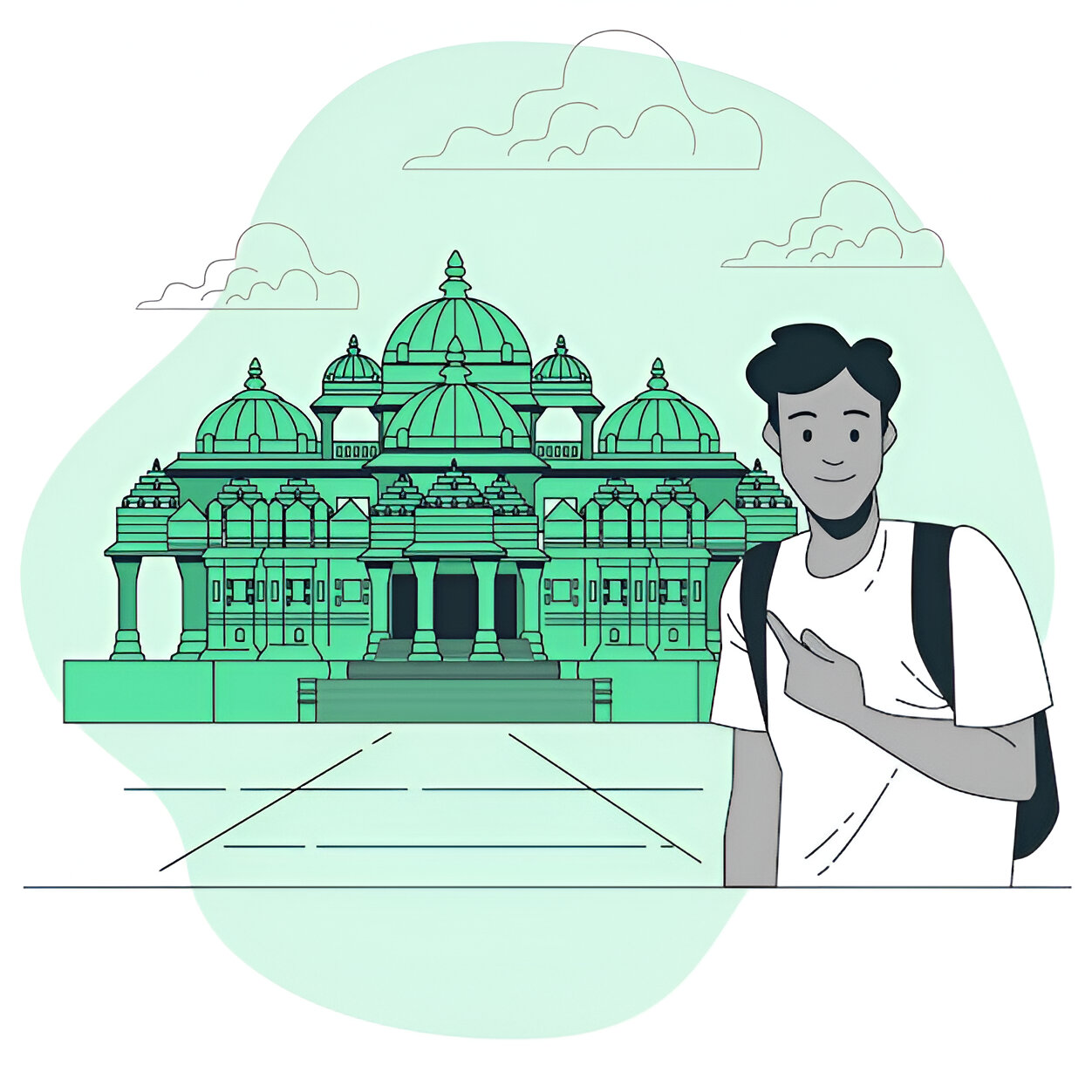Mohandas Karamchand Gandhi
When you want to search on Mahatma Gandhi, what do you think about? To most people, it is the image of a wimpish man in a mere loincloth, who caused millions of people to follow him in non violent opposition. This well-known character is more than what you see. Mohandas Karamchand Gandhi, more commonly referred to as Mahatma Gandhi was not only the spiritual father of the independence movement in India, but he was a world icon, whose actions and efforts embodied nonviolence in struggle and ethical leadership.
Who Was Mahatma Gandhi?
Early Life and Education
Mahatma Gandhi , who was born on 2 October 1869 in Porbandar in Gujarati (which was a part of British India) had a humble background. His father Karamchand Gandhi was the local statesman and his mother Putlibai was very religious. Gandhi was introduced to the virtues of truth and nonviolence at an early age and then he later incorporated this into his work.
In London, where he acquired education in law, he first encountered Western philosophy and works of such philosophers as Henry David Thoreau and Leo Tolstoy. Nevertheless, Gandhi started changing in South Africa.
Awakening in South Africa
In 1893, Gandhi moved to South Africa to become a young lawyer to represent an Indian business community. It is there that he experienced the brunt of racial discrimination first hand such as being thrown out of a train because he insisted on not getting out of a first class compartment that was only accessible to whites. This case led to the continuous pursuit of justice in life.
In the course of the following twenty years, Gandhi grew to formulate his Satyagraha philosophy, or truth force; or, soul force, which was based on nonviolence resistance. He fronted a number of successful campaigns which he won against discriminatory laws and gained respect nationally and internationally.
Mahatma Gandhi and the Indian Independence Movement
Return to India and Rise to Prominence
Gandhi got back to India in 1915 and soon joined the Indian National Congress. His activism in the grassroots and the way he is able to reach the common man made him different compared to other leaders during his time. Gandhi altered the independence movement to a mass movement through stressing on self-help, civil disobedience, and non cooperation.
Key Movements Led by Mahatma Gandhi
- Non-Cooperation Movement (1920–1922)
After the Jallianwala Bagh slaughter, this movement started and told Indians to stay away from British schools, courts, and goods. Gandhi started the first big movement in history.
- Civil Disobedience Movement (1930–1934)
The Salt March in 1930 was one of the most significant protest images of all time. Gandhi led a march of more than 240 miles to Arabian Sea in order to manufacture salt in protest of British salt tax. Millions were inspired and the international audience was drawn by the Indian cause because of this act.
- Quit India Movement (1942)
Gandhi started the Quit India Movement in the middle of World War II. It asked the British to evacuate India right away.
Philosophy of Nonviolence: Ahimsa and Satyagraha
The use of nonviolence or the concept of Ahimsa and insistence on truth or Satyagraha were the core convictions of the ideology of Mahatma Gandhi. These were not only political tactics but also strong spiritual convictions that defined his worldview all over.
Ahimsa: The Power of Nonviolence
In the case of Gandhi, he was of the thought that no good will come out of violence, but does the reverse. Rather, he preached love, forgiveness, and compassion even to the foes. He taught that true strength comes from moral strength, not physical strength or hard physical power.
Satyagraha: Truth as a Weapon
Gandhi had his own and distinct way of resisting-Satyagraha. It achieved a synthesis of nonviolence, truth and the non-participation in the opposition to defeat the oppression. Satyagraha, as compared to neutral resistance, demanded active participation and readiness to suffer without acting back.
The philosophy spilled into other parts of the world such as civil rights of Martin Luther King Jr. in the United States and the anti-apartheid movement in South Africa led by Nelson Mandela.
Mahatma Gandhi’s Role in Social Reform
Gandhi was a political activist, but his main goal was to change society. He was involved in elimination of caste discrimination, empowerment of women, enhancing sanitation as well as development of rural development.
Fight Against Untouchability
Gandhi was totally against the caste system and he has called untouchables as Harijans or children of god. He lived there, that he was a cleaner in the toilets and used to nudge others to do so and break centuries-old prejudices.
Women’s Empowerment
Gandhi was of the opinion that women should be equal and thus he engaged them in struggling to achieve freedom. He urged women to join protests, spin khadi and be self dependent.
Rural Development and Self-Reliance
Gandhi was in favor of Swadeshi, which implies using items made in India, and rural industries. He conceived that the future of India was in its villages and again the idea of self-sufficiency resettlement in India.
Mahatma Gandhi’s Writings and Speeches
Gandhi was a traveler, writer and speaker.Through his weekly newspapers Young India and later Harijan, he shared his thoughts on politics, religion, and morality. His literary work, the story of my experiments with truth, continues to be one of the most read works of an individual on personal development and the practice of ethics.
His speeches, usually in simple yet effective language, could inspire people across classes and regions. It is one of the most popular quotes of his existence in the world, and it now motivates not only generations but just people. Change yourself to make the world a better place.
Assassination and Legacy
Soon after India became free, on January 30, 1948, Mahatma Gandhi was assassinated by Nathuram Godse, a Hindu nationalist who did not agree with Gandhi’s more inclusiveness. His death was one which shattered the globe and left a vacuum in the Indian leadership.
Gandhi’s memory lives on, even if he is dead. The United Nations marks his birthday (October 2) as International Day of Non-Violence. His contributions to peace and justice are documented in the form of statues, memorials and institutions around the world.
Global Influence of Mahatma Gandhi
Impact on Civil Rights Movements
Martin Luther King, Jr., who observed Gandhi tactics attentively, attributed him as having a great contribution to the United States Civil Rights Movement. During the Montgomery Bus Boycott and other important activities, King embraced the nonviolent resistance.
Peacebuilding and Conflict Resolution
Gandhi has ideals constantly mentioned by organizations that deal with human rights and conflict solutions like UNESCO and Amnesty International. His focus on dialogue, empathy and reconciliation is applicable in the current world of turbulence.
Environmentalism and Sustainability
As the world battles with climate change, the messages about simple living, environmental stewardship and sustainable farming that were espoused by Gandhi have again been put into center stage. His Marxist mantra that the planet can yield enough to meet the needs of every man, but never his greed are reverberated in the contemporary ecological rhetoric.
Mahatma Gandhi in Popular Culture
Films and Documentaries
There are several films regarding the life of Gandhi, and the most memorable of them is the film directed by Richard Attenborough called Gandhi (1982) which received four Academy Awards including the award as the Best Picture. Additional documentaries as well as biopics are still in the production that discuss other aspects of his character and influence.
Literature and Art
Gandhi has been cited by authors like Arundhati Roy, Rabindranath Tagore and George Orwell. His life has inspired artists and poets all over the world and has been the subject of visual art and poetry as well as music in his honor.
Conclusion: The Timeless Relevance of Mahatma Gandhi
The teachings of Mahatma Gandhi are really relevant in the age of segregation, violence, and environmental crisis. His life can be used as a blueprint of ethical leadership, compassionate resistance and sustainable living. In solving complex problems, the principles provided by Gandhi are hopeful, spiritual, and informative.
You can be studying his life to either be academically informed, to seek inspiration to live your life, or to simply see the historical value of his life, but to know Mahatma Gandhi is to know the power of truth and nonviolence and the dignity of man.





